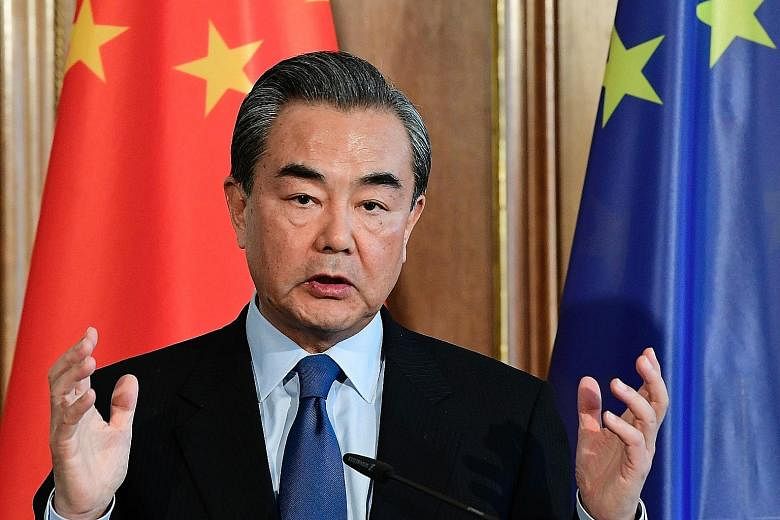SHANGHAI/BEIJING • China needs to raise its military capabilities to protect its growing overseas interests, its Foreign Minister said, following the launch of China's first domestically built aircraft carrier, while vowing not to pursue expansionism.
China launched the carrier on Wednesday amid rising tensions over North Korea and regional worries about Beijing's assertiveness in the South China Sea and its broader military modernisation programme, Reuters reported.
Speaking during a visit to Germany, Chinese Foreign Minister Wang Yi said Chinese businesses and citizens have spread all around the world, with millions of people living overseas and nearly 30,000 Chinese-funded businesses registered in other countries.
"Under this new environment, China has ample reason to raise its own national defence capability to effectively protect its fair rights that are increasingly extending overseas," Mr Wang said in response to a question on the new carrier. He added that China would maintain a defensive military policy and had "no intention to engage in any kind of expansion".
The influential state-run tabloid Global Times said the launch represented a milestone in military development.
"Building a strong defence... with a widespread global reach is now necessary to protect China's businesses and the massive interests that arise from them," the paper said in an editorial yesterday.
State media has quoted experts as saying China needs at least six carriers and a corresponding number of overseas bases to support them. That will leave China well short of being able to challenge the United States, which operates 10 carriers and plans to build two more, and has decades of experience operating them, reported Reuters.
Speaking at a monthly news briefing, Chinese Defence Ministry spokesman Yang Yujun would not say how many more carriers China wanted to build, only that future developments could give "overall consideration" to various factors.
Asked if China wanted overseas bases to support its carriers, Mr Yang said: "I think this is overthinking things." He did not elaborate, according to Reuters.
In an editorial yesterday, the China Daily newspaper said the new carrier does not mean a change to China's defence policy. "It would be wrong... to perceive the new vessel as evidence of the 'China threat' so beloved of some," it said.
"If anything, China is late in joining the club of nations that have aircraft carriers. The world's second-largest economy is the last among the five permanent members of the United Nations Security Council whose navies have carrier groups. Even its Asian neighbours, India and Thailand, have had aircraft carriers in service for several decades," China Daily said.

